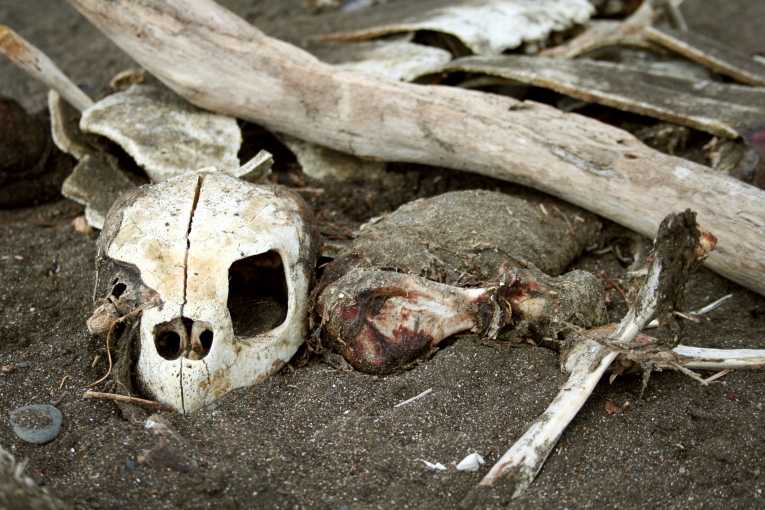Environmentalists are warning about the effect on sea-life, particularly sea-turtles, of the impact of humans' dependency on plastic.
The stomach contents of a young sea-turtle found dead off the Argentinian coast were examined by scientists. It was found to contain hundreds of small pieces of plastic detritus. More than half of the 90 sea-turtles found dead of the coast of Brazil were found with similar shards of plastic in their guts or faeces.
Environmentalists say the small pieces of plastic are caused by human waste. Over 290 million tonnes of plastic are produced each year. When thrown away or dumped in the world's oceans they are not biodegradable so do not break down naturally. Instead they are broken up into smaller and smaller pieces by the seas' currents.
Sea-life, young sea-turtles in particular, mistake the debris for food. Once ingested they can scratch or become lodged in their intestine making eating and digestion virtually impossible often leading to death.
The level of waste in the world's oceans was flagged up in a horrifying image of the 'great garbage pile', an island of debris, almost the size of Texas, that is believed to include over 3.5 million pieces of debris.
Environmentalists warn that if humans do not curb their dependence on plastic, they run the risk of severely depleting, or even contributing to the extinction of some species of sea-life harmed by ingesting small pieces of plastic. Efforts to raise the awareness of the need to reduce waste, from balloons, plastic bags, toothbrushes etc are run in the UK by groups like the Marine Conservation Society, who monitors the impact of marine litter on the British coast. In the South East the society launched a campaign called ''Don't Let Go'' aimed at reminding people not to let balloons go in order to protect wildlife.










